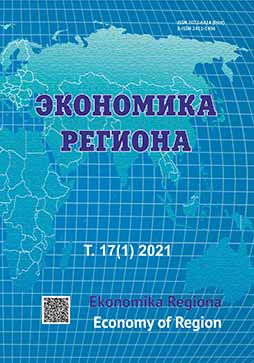Влияние передовых технологий Индустрии 4.0 на безработицу в российских регионах
The Impact of Advanced Industry 4.0 Technologies on Unemployment in Russian Regions
Author(s): Olga Koropets, Yevgeniya Khasanovna TukhtarovaSubject(s): Economy
Published by: Институт экономики Уральского отделения Российской академии наук
Keywords: unemployment; technological paradigm; advanced technologies; industry 4:0; automation; psychosocial well-being of workers; population with higher education; spatial analysis
Summary/Abstract: The introduction of advanced technologies requires restructuring the labour market and redistributing the workforce. Therefore, the study of the demand for workers in the digital economy is necessary for preventing unemployment. We examine the impact of advanced technologies on unemployment in Russian regions. The transition to a new technological wave and the development of advanced technologies will differently affect the unemployment among various categories of population depending on their educational level. Using the combination of spatial analysis, statistical and econometric methods, we identified clusters of high-tech, medium-tech, and low-tech regions of the Russian Federation, described the impact and confirmed the proposed hypothesis. We have discovered that most Russian regions have a low potential to transition to a new technological wave. Simultaneously, in high-tech regions with sufficient potential to develop a new technological wave, digital economy does not require a large number of employees with university education. Moreover, such regions are experiencing an acute shortage of people with vocational education. Currently, selected Russian regions have resources, potential and reserves to develop the sixth technological wave, while others provide human resources. This situation leads not only to deepening regional differentiation but also to severance of economic relations between regions, hindering their interaction in the new conditions. The obtained results can be used to support proposals and measures for regulating labour market processes to develop scientific, technological and economic potential of the country.
Journal: Экономика региона
- Issue Year: 17/2021
- Issue No: 1
- Page Range: 182-196
- Page Count: 15
- Language: Russian

